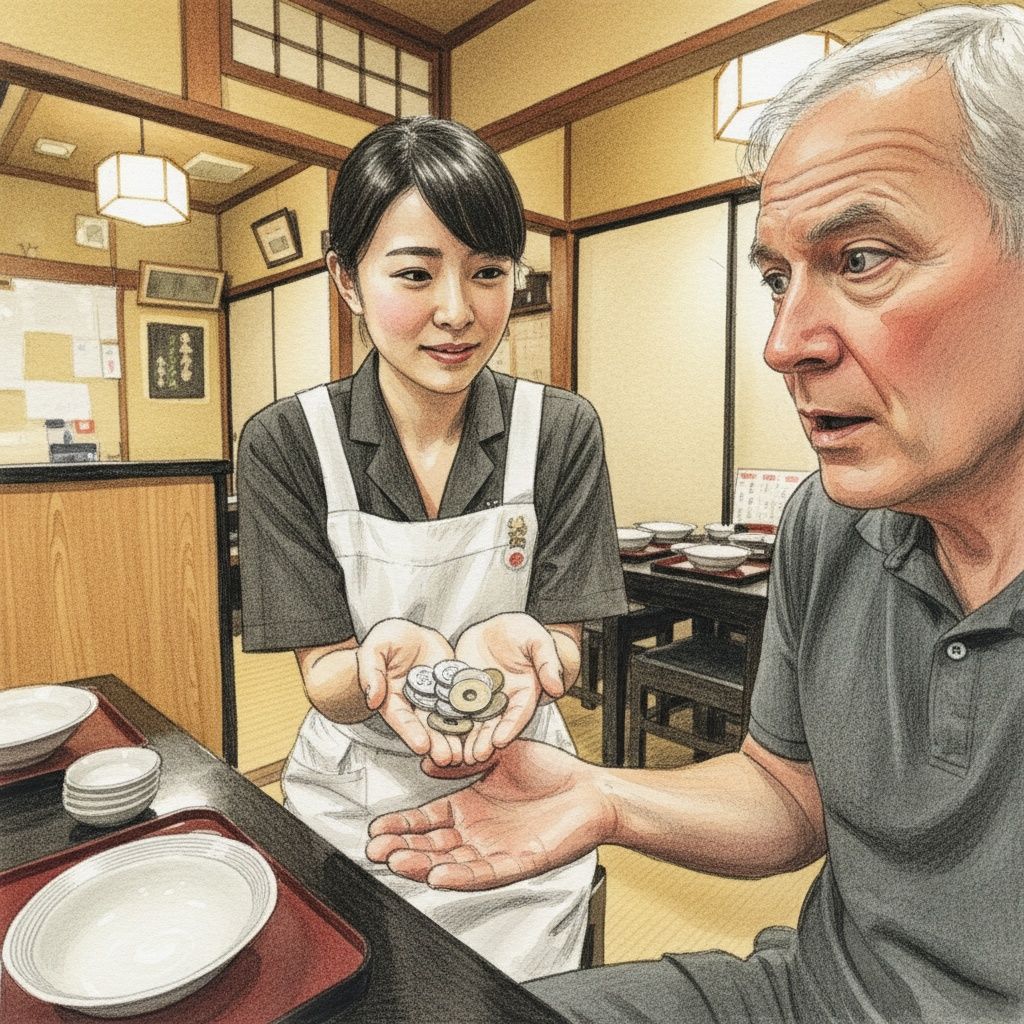No tipping in Japan

Tipping in Japan isn't just unnecessary—it can be genuinely awkward or even offensive. The concept runs counter to Japanese service philosophy, where excellent service is already built into prices and considered professional pride. Staff might chase you down to return money they think you forgot, or feel confused about why you're offering extra payment. This cultural difference catches many visitors off guard, but once you understand it, dining and service interactions become much simpler. Skip the mental math, avoid the wallet fumbling, and trust that the service you receive reflects genuine hospitality rather than expectation of extra compensation.
Quick essentials
- Tipping can confuse or offend service staff who take pride in their work
- Service charges are already included in advertised prices
- Cash left behind might be returned to you as "forgotten money"
- Quality service is considered professional standard, not something requiring extra payment
FAQ
What happens if I accidentally tip someone?
Most staff will politely try to return the money, thinking you made a mistake. Some might accept it awkwardly but feel uncomfortable about the interaction.
Are there any exceptions where tipping is acceptable?
Very rare situations like private tour guides or ryokan staff might accept small gifts (omiyage) rather than money, but even this isn't expected.
How do I show appreciation for exceptional service?
A sincere "arigatou gozaimasu" (thank you very much) or a small bow carries more cultural weight than money ever could.
What about delivery drivers or taxi drivers?
No tipping expected. Taxi drivers will give you exact change down to the yen. Delivery is typically prepaid.
Do hotels expect tips for housekeeping or concierge services?
No. These services operate on the same no-tipping principle as restaurants and other businesses.
Should I tip at expensive restaurants or bars?
Higher-end establishments especially operate on pride in service. Tipping suggests their pricing doesn't reflect true value.
Related Japanese terms
- Omotenashi (おもてなし) - Japanese hospitality philosophy
- Arigatou gozaimasu (ありがとうございます) - Formal thank you
- Omiyage (お土産) - Gift-giving culture
- Reigi (礼儀) - Proper etiquette and manners
The pride principle
Japanese service culture runs on professional pride rather than financial incentives. When a server brings your food or a taxi driver helps with luggage, they're fulfilling their role as they believe it should be done. Excellence comes from within, not from hoping customers notice.
Why the resistance exists
The relationship between customer and service provider follows different rules here. Prices already account for quality service. Adding money on top suggests either the business underpriced their service or the worker isn't being paid fairly by their employer. Both implications feel wrong to Japanese sensibilities.
Restaurant servers, hotel staff, delivery workers—they've all been trained to a standard that visitors often find remarkable. But that standard exists because it's expected, not because it's rewarded with extra cash.
What to do instead
Express gratitude verbally. A genuine thank you resonates more than money. Staff remember customers who acknowledge their efforts with words.
Follow other customs properly. Bow slightly when appropriate. Handle money respectfully during payment. These gestures show cultural awareness.
Leave positive reviews. Online reviews or comments to management can boost a worker's reputation more effectively than tips boost their income.
Tourist trap territory
Some establishments in heavy tourist areas might accept tips without the usual confusion, but they're adapting to foreign expectations rather than operating on Japanese norms. Even there, tipping remains unnecessary.
The beauty of no-tipping culture reveals itself quickly. Meals cost exactly what menus say. Service comes without ulterior motives. Interactions feel cleaner, more straightforward. You're not evaluating performance for payment—you're just receiving what Japanese businesses consider their baseline obligation to provide.